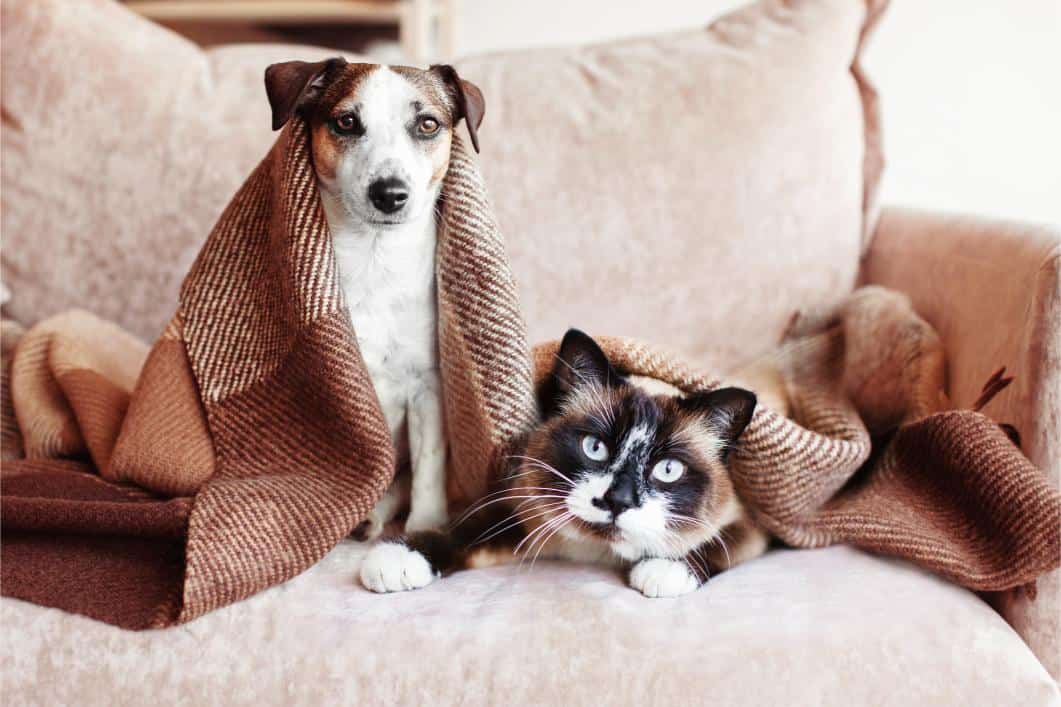Winter Pet Safety Tips

Old Man Winter has arrived, and that means it’s time for a friendly refresher on the best ways to practice winter pet safety, both indoors and out. Check out these tips from our team at Switzer Veterinary Clinic to help keep your furry friends safe and warm during Michigan’s coldest season.
Brush Up On Winter Grooming
When pets start spending more time indoors, it’s natural to think they need less frequent bathing and brushing. For optimal pet wellness, keep these winter grooming tips in mind:
- Brush your pet regularly to prevent the buildup of shed fur, which could lead to uncomfortable mats and tangles. Brushing also distributes your pet’s natural oils, which helps moisturizer the skin and coat.
- Protect your pet’s paws by using booties for winter walks, and clean off your pet’s furry feet to remove harmful substances like de-icers or sidewalk salt. Paw balms also offer protection from the elements.
- Your pet’s nails may need to be trimmed more often during less active winter months.
Prevent Pet Frostbite
If it’s too cold for people outside, it’s too cold for cats and dogs. Protect your pets from the dangers of frostbite with these tips from our team:
- Keep your pets inside as much as possible when temperatures fall below freezing, especially if you have small breeds; pets with short or thin coats; and pets that are either very young or very old.
- Pets exhibiting signs of hypothermia (including shivering, whining, and weakness) should be moved indoors immediately. Seek urgent care treatment if you suspect that your pet may have frostbite or hypothermia.
- If you’re caring for a feral cat, provide an outdoor shelter if possible. DIY feral cat shelters can be made easily with storage totes or Styrofoam coolers.
More Cold Weather Pet Care Tips
Pet safety is paramount both indoors and out during cold weather. Keep these winter pet safety tips top of mind to protect your own pets and other neighborhood animals:
- Antifreeze is extremely toxic. Clean up spills immediately and store antifreeze and other de-icing agents away from pets.
- Check your car for feral cats if you park outside. Bang on the hood, look under the car, and toot the horn before starting the engine.
- Keep pets well hydrated by always making sure they have access to clean, unfrozen water.
- Do not allow your dog to walk on frozen lakes.
- To prevent fires, choose space heaters with auto shut-off features in case a pet tips them over.
- Prepare ahead of time for winter storms, slick roads, and power outages by keeping a five-day supply of pet food, cat litter, pet prescriptions, and other daily needs on hand.
At Switzer Veterinary Clinic, we’re happy to answer your questions about cold weather pet safety in Alpena. Please contact us at (989) 340-0975 if your pet becomes sick or injured this winter.

